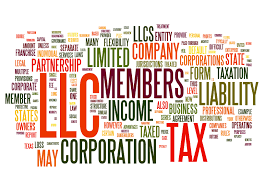Important changes to Connecticut’s Limited Liability Act highlighted in our blog today. (This new law, effective July 1, 2017, adopts many provisions of the Uniform Limited Liability Act followed in other states and received strong support from the American and Connecticut Bar Associations.) This new law provides additional flexibility and clarity to business owners and managers and may be the ideal business structure for many doing business here in Connecticut.
The efforts behind the new act were a desire for Connecticut to become more “business friendly” and encourage more businesses form their LLCs here and remain in Connecticut. This new Act provides LLCs with greater flexibility to customize their Operating Agreements (the key governing document) to fit their circumstances. It also provides greater clarity for attorneys drafting these agreements and for courts interpreting provisions when there’s a dispute. Among a major change for small business are clearer default rules for those without written operating agreements. This is always important topic when counseling our new business clients to understand all statutory requirements must be met. Otherwise businesses run the risk of claims against their personal assets!
 The Act itself is rather lengthy, but new, major provisions include:
The Act itself is rather lengthy, but new, major provisions include:
- More detail about fiduciary duties and charging orders against Members in debt collection;
- Changes when a Member (owner) can bind the LLC as an agent;
- New provisions on derivative actions by a Member;
- Changes rules regarding mergers between Connecticut LLCs, including mergers with foreign LLCs, and adds provisions governing interest exchanges. The new Act’s requirements for the plan of merger are similar to those in current law.
- Terminology changes from “Article of Organization” to “Certificate of Organization.”
- Allows far more flexibility in drafting Operating Agreements, but may not, as one would expect, authorize any unlawful or bad faith conduct.
- Members are no longer agents of an LLC solely because they are a member.
- Changes the provisions of the former Act providing that a member or other person entitled to a distribution becomes a creditor. Under the new Act, the LLC’s obligation to make a distribution can be offset by amounts the recipient owes the LLC.
- Requires unanimous member approval for amendments to the Certificate of Organization or Operating Agreement and expands to super majority voting requirements approval for any act outside the LLC’s ordinary course of activities. The Act also allows members to vote without a meeting and members may appoint a proxy or agent.
- A duty to reimburse a member or a manager for any payment made by the member or manager in the course of doing business on behalf of the LLC, if the member or manager complied with the Act’s provisions on voting and duty of loyalty. Similarly, the Act allows an LLC to indemnify and hold harmless someone for acting as a member or manager as long as liability is not based on breaching duties regarding distributions, voting, or the duty of care or loyalty to the LLC. It extends these provisions to officers. The Act requires an LLC to indemnify a person who was successful in defending LLC in a proceeding with respect to a claim or demand based on the person’s capacity as a member, manager, or officer.
______________________________________________________________________________
Connecticut is now the 14th state to enact the most recent version of the Uniform Act is expected to give some better clarity to businesses in running their day to day operations and more consistency for courts in interpreting the Act’s provisions, As far is reaching the desired result for a friendlier business environment for Connecticut, the jury’s still out. Following the statutory rules, so companies can enjoy the protections LLCs provide, of course, remains critically important.
________________________________________________________________________
For over 2 decades, our firm has focused on advising both more sophisticated nationally-based businesses, as well as smaller, local start-up companies, assisting clients with a wide range legal matters such as guidance on forming LLCs and corporations, resolving contract and other business disputes, business combinations, mergers, acquisitions, compliance issues such as responding to regulatory inquires, data breaches and many of the other issues arising in today’s increasingly complex business world.
________________________________________________________________________________
 We recommend new businesses consider LLCs for the flexibility and increased clarity available under the new law; and that existing LLC governing documents be reviewed, by well-qualified business counsel. We welcome your inquiries on how we can help with this or other general business law topics.
We recommend new businesses consider LLCs for the flexibility and increased clarity available under the new law; and that existing LLC governing documents be reviewed, by well-qualified business counsel. We welcome your inquiries on how we can help with this or other general business law topics.